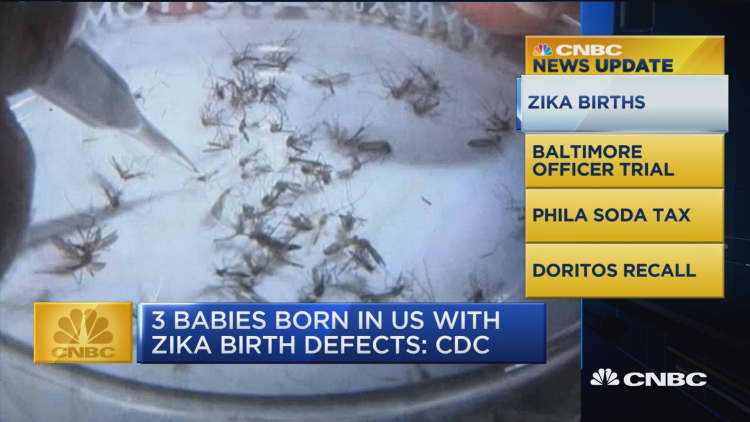Zika virus infections appear to be increasing rapidly in Puerto Rico, U.S. health officials said Friday, putting thousands of pregnant women at risk for potential infection.
"Summer is heating up and so is Zika," Tom Frieden, director of the Centers for Disease Control and Prevention, told reporters on a conference call. "This could lead to dozens or hundreds of infants being born with microcephaly in the coming year."
The CDC is tracking Zika infections in the blood supply in Puerto Rico, what Frieden called potentially "our most accurate real-time leading indicator of Zika activity" there. The test is made by Swiss drug giant Roche and has been used to test donated blood in Puerto Rico since early April.
The most recent week of data, through June 11, showed 1.1 percent of blood donations in Puerto Rico tested positive for Zika. This implies a higher rate of infection in the community, he said: "perhaps a 2 percent rate of infection each month."
"This means over the course of many months, i.e., a nine-month pregnancy, there is a substantial chance a woman would become infected," Frieden said.
The numbers are rising, and Frieden said similar viruses transmitted by the same mosquito — dengue and chikungunya — typically peak in Puerto Rico over the summer months and into the fall.
Zika has been proven to cause microcephaly in babies of some pregnant women who become infected. It's a birth defect that leads to underdeveloped brains and smaller heads. Data from other countries up to this point indicate a pregnant woman infected with Zika in her first trimester may have between a 1 and 15 percent chance of having a baby with microcephaly, Frieden said.

The CDC said Thursday there have been six pregnancies with Zika-related birth defects in U.S. states; three were born with microcephaly or other complications, and three were miscarried or aborted. All were among travelers to Zika-affected areas; there is no current Zika transmission in U.S. states.
The Roche test is not currently used to test the blood supply in U.S. states, CDC officials said. Blood centers in those areas use questionnaires to determine whether donors have traveled to areas of active Zika transmission, or have sexual partners who have. Those who meet those criteria are turned away from donation. All Zika-infected blood in Puerto Rico is removed from the supply.
Frieden emphasized the importance of communities working together to protect pregnant women from Zika, noting that controlling the mosquito that transmits the virus is very difficult.
"One of the challenges of combating Zika is that consequences of what we do today won't become apparent for many months," Frieden said. "It makes it challenging, but it also makes us want to ensure we're doing everything possible now so we don't look back in three, six or 12 months and say we wish we'd done more back in June."

